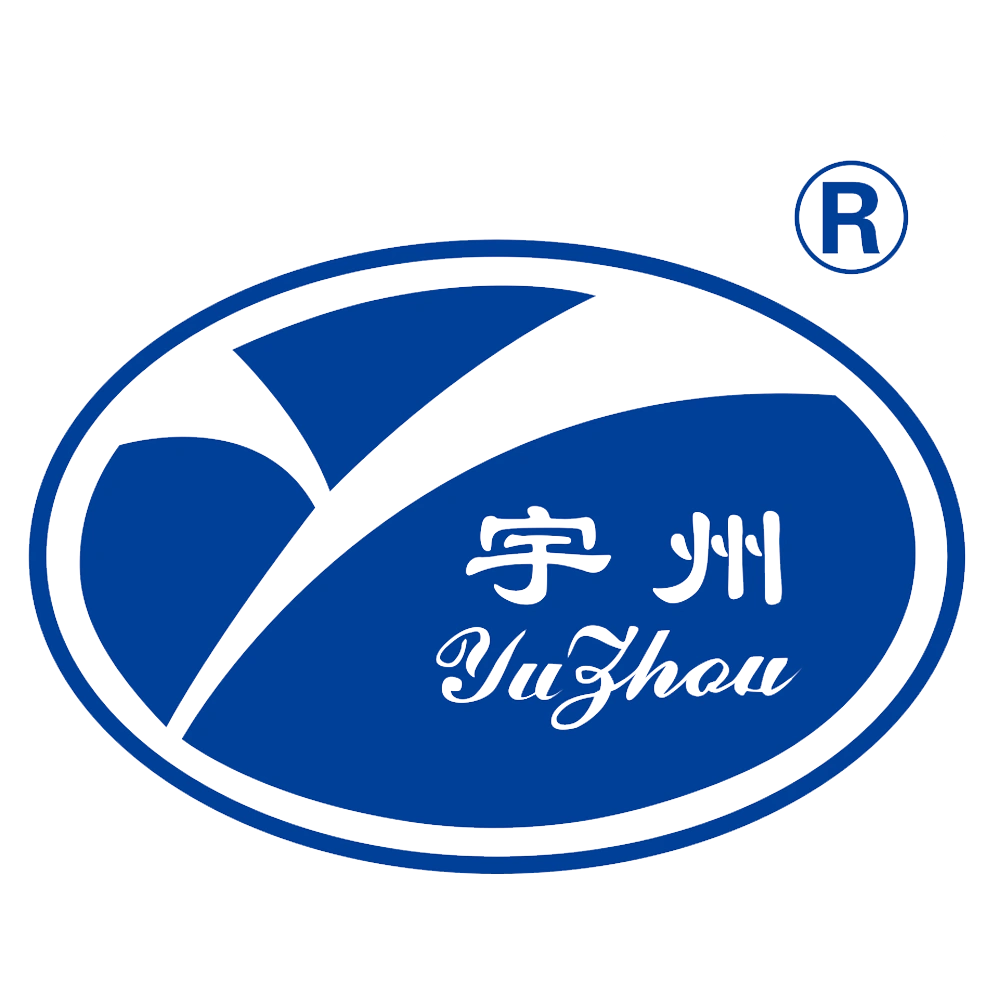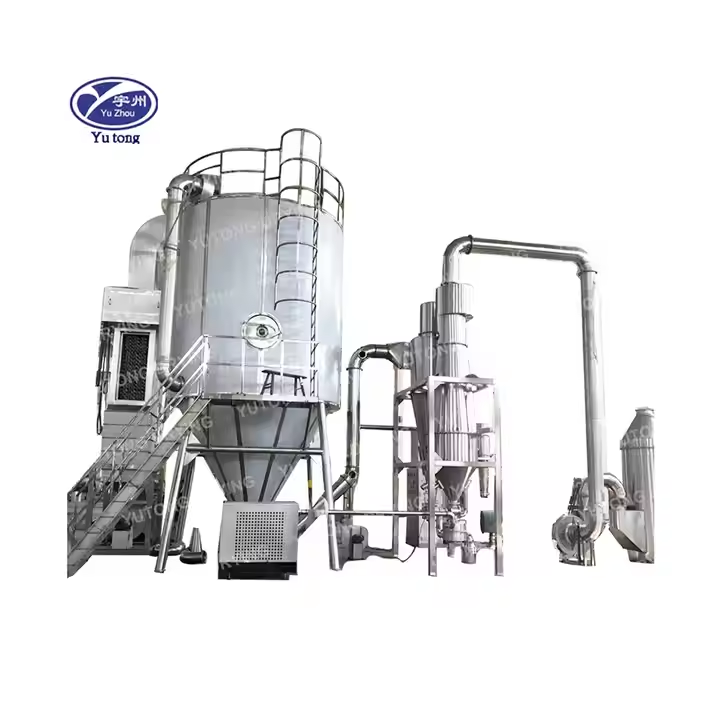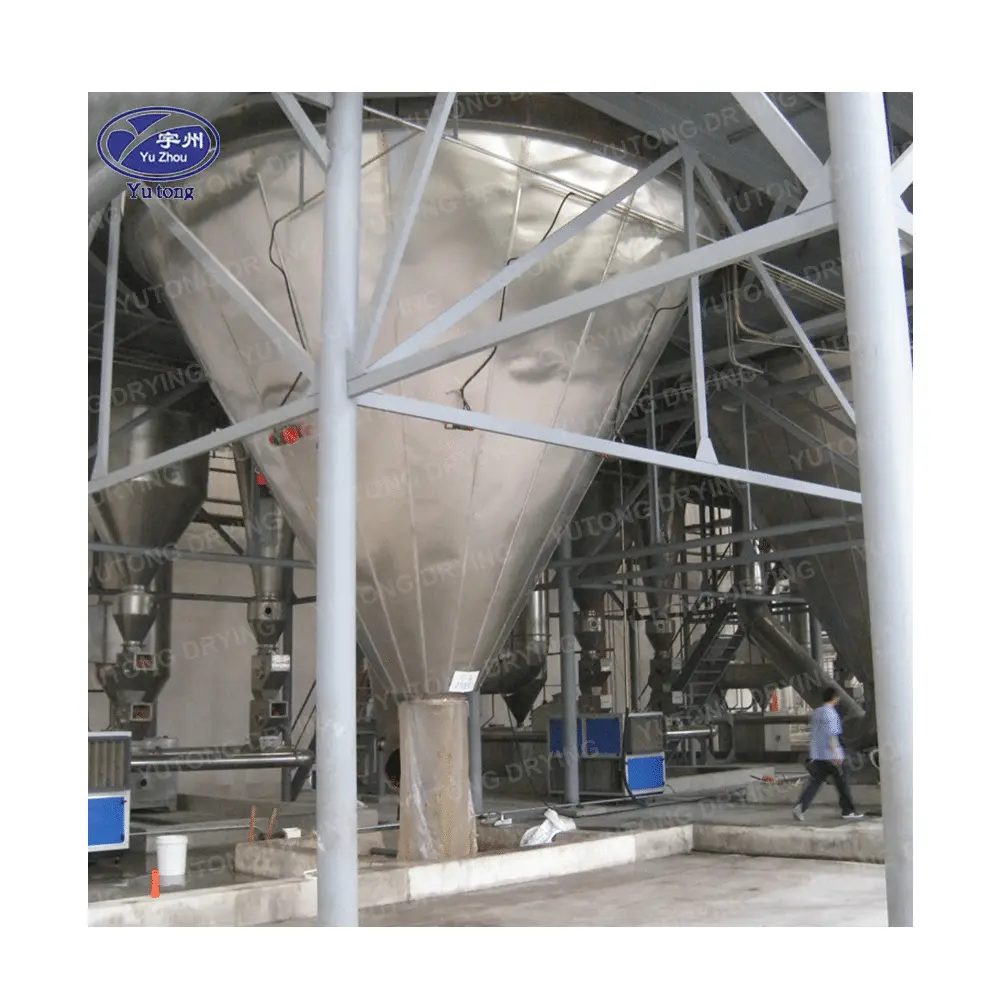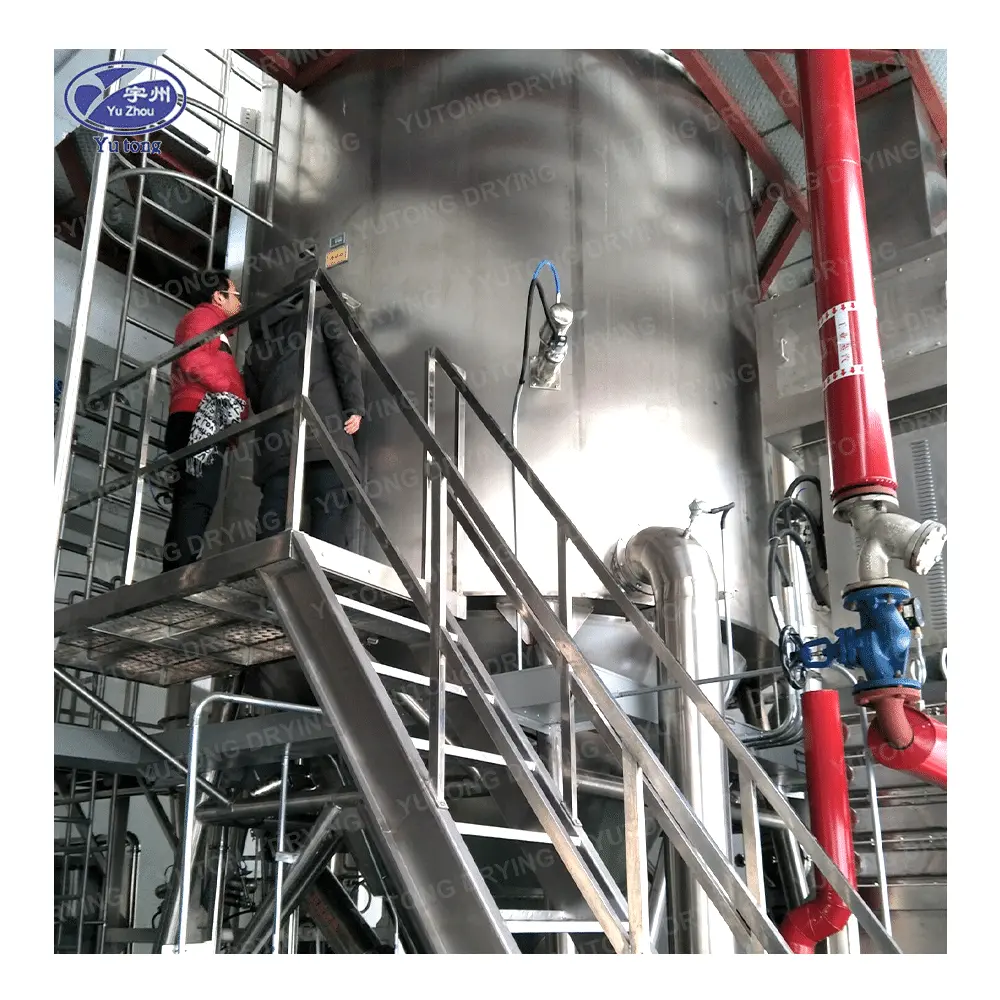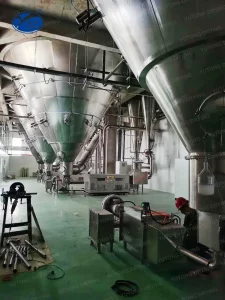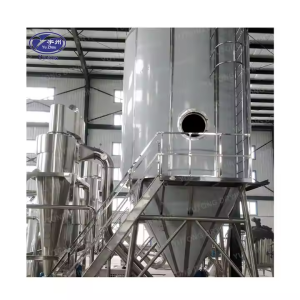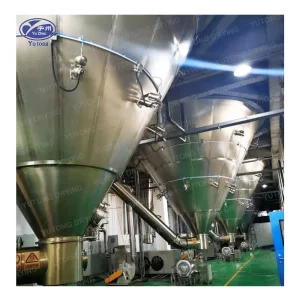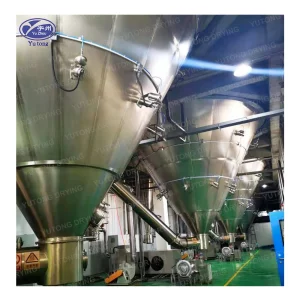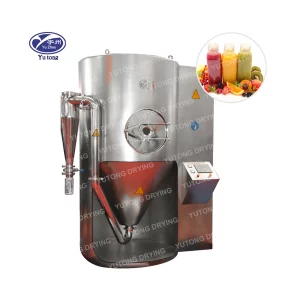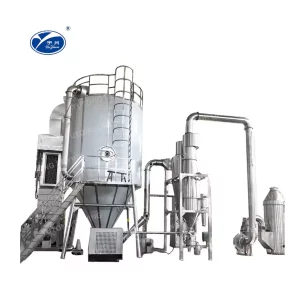Table of Contents
Product Detail
damrow spray dryer
In the rapidly evolving world of industrial drying, spray dryers have established themselves as indispensable tools, particularly for transforming liquid feeds into dry powders. Among the numerous options available in the market, the Damrow spray dryer stands out due to its versatility and efficiency. This equipment is a cornerstone in several industries, including food processing, pharmaceuticals, and chemicals, thanks to its advanced design and robust capabilities. In this comprehensive article, we will delve into the intricate features, myriad benefits, and diverse applications of the Damrow spray dryer. Furthermore, we will compare it with other notable models like the DeLaval and Filtermat spray dryers to provide a holistic view.
Understanding Spray Drying
Spray drying is a sophisticated process that involves converting liquid materials into dry powder by rapidly drying them with a hot gas. This technique is particularly favored for drying thermally sensitive materials, such as foods and pharmaceuticals, as it helps preserve their essential properties. The Damrow spray dryer exemplifies how cutting-edge technology can enhance this process, ensuring optimal results.
The Science Behind Spray Drying
Spray drying is a complex yet fascinating process that marries chemistry and engineering. It involves three critical steps: atomization, drying, and recovery. Atomization is where the liquid feed is transformed into a fine mist, creating a larger surface area for drying. The drying phase involves the rapid evaporation of moisture as the droplets encounter hot air, leaving behind dry particles. The recovery phase collects these particles for further processing or packaging. Each step is meticulously controlled in the Damrow spray dryer to maximize efficiency and product quality.
Advantages of Spray Drying
The benefits of spray drying extend beyond just drying. It offers unparalleled control over particle size, bulk density, and moisture content, which are crucial for product consistency. This process also minimizes the degradation of heat-sensitive components, maintaining the nutritional and functional properties of the feed material. Additionally, spray drying allows for the production of uniform and easily rehydratable powders, which are highly sought after in the food and pharmaceutical industries.
How Does a Spray Dryer Work?
At its core, a spray dryer operates by atomizing the liquid feed into tiny droplets, which are then exposed to a stream of hot air. This exposure quickly evaporates the moisture, leaving behind dry particles. The Damrow spray dryer is equipped with state-of-the-art atomizers and air dispersers, ensuring uniform drying and high-quality powder production. The precision in the atomization process is pivotal, as it directly influences the drying efficiency and the final product’s characteristics.
Key Features of the Damrow Spray Dryer
The Damrow spray dryer is renowned for its robust design and advanced features. Here are some of the key attributes that make it a preferred choice in the industry:
Efficiency and Precision
The Damrow spray dryer is engineered for maximum efficiency, boasting advanced control systems that allow for accurate temperature and airflow adjustments. This precision optimizes the drying process for various materials, ensuring consistent product quality and reduced energy consumption. The ability to fine-tune these parameters also minimizes waste and improves throughput, making it an environmentally friendly option.
Versatility
One of the standout features of the Damrow spray dryer is its versatility. It can handle a wide range of feed types, including solutions, suspensions, and emulsions. This adaptability makes it suitable for diverse industries, from dairy and food processing to pharmaceuticals and chemicals. The flexibility to switch between different feed types without compromising performance is a testament to its innovative design.
Advanced Control Systems
The Damrow spray dryer is equipped with sophisticated control systems that facilitate seamless operation. These systems provide real-time monitoring and adjustments, ensuring that the drying parameters remain within the desired range. Operators can easily modify settings based on the feed material, enhancing the dryer’s performance and product quality.
Easy Maintenance and Operation
Designed with user-friendliness in mind, the Damrow spray dryer is easy to operate and maintain. Its intuitive interface simplifies control, while the robust construction ensures durability and minimal downtime. The modular design allows for straightforward cleaning and maintenance, reducing operational interruptions and extending the equipment’s lifespan.
Applications of the Damrow Spray Dryer
The Damrow spray dryer is employed in various industries due to its adaptability and efficiency. Here are some typical applications:
Food and Beverage Industry
In the food industry, the Damrow spray dryer is used to produce powdered products such as milk, coffee, and egg powder. Its ability to preserve flavor and nutritional content makes it an ideal choice for these applications. Precision drying ensures that the delicate flavors and essential nutrients are retained, offering consumers high-quality products.
Pharmaceutical Industry
The pharmaceutical industry relies on the Damrow spray dryer for producing dry powders from medicinal liquids. Its precise control over drying conditions ensures the stability and efficacy of the final product. By maintaining the integrity of active ingredients, it plays a crucial role in ensuring that pharmaceutical products meet stringent quality standards.
Chemical Industry
In the chemical sector, spray dryers like the Damrow model produce powders from chemical solutions and suspensions. This application is crucial for creating products with specific particle sizes and properties. The ability to fine-tune the drying process allows for the production of materials with exacting specifications, which is essential for high-performance applications.
Nutraceutical Industry
The growing nutraceutical industry has also found value in the Damrow spray dryer. It is used to create powdered supplements and dietary aids that require precise control over nutrient content and bioavailability. The gentle drying process ensures that sensitive bioactive compounds are preserved, enhancing the health benefits of the final product.
Environmental Applications
In recent years, the Damrow spray dryer has been utilized in environmental applications, such as the treatment of waste streams. By converting liquid waste into stable powders, it aids in reducing waste volume and facilitates easier handling and disposal. This application underscores its versatility and contribution to sustainable industrial practices.
Comparison with DeLaval and Filtermat Spray Dryers
When selecting a spray dryer, it’s essential to consider the alternatives. The DeLaval and Filtermat spray dryers are other notable models in the market. Here’s how they compare with the Damrow spray dryer:
DeLaval Spray Dryer
The DeLaval spray dryer is known for its innovative design and high efficiency. It excels in energy conservation and is well-suited for large-scale operations. However, its initial setup cost can be higher compared to the Damrow spray dryer. While it offers excellent performance, potential buyers should weigh the cost against the expected return on investment and operational needs.
Filter mat Spray Dryer
The Filtermat spray dryer is favored for its ability to handle sticky materials and its integrated filtration system. It is ideal for specific applications that require these features. While it offers excellent performance, it may not match the versatility of the Damrow spray dryer for different feed types. Its specialized design is perfect for niche applications but may not be as adaptable for varied industrial needs.
Performance and Cost Analysis
When evaluating the performance and cost of these spray dryers, it is essential to consider both the short-term and long-term implications. The Damrow model offers a balance of performance and cost-effectiveness, making it an attractive option for many industries. It provides reliable results without necessitating extensive modifications or additional expenses, which can be a significant advantage in competitive markets.
User Experience and Support
Another crucial factor in comparing these models is the user experience and the level of support offered by the manufacturers. The Damrow spray dryer is praised for its user-friendly design and comprehensive support network. This ensures that operators can quickly resolve issues and maintain peak performance, minimizing downtime and maximizing productivity.
Choosing the Right Spray Dryer
When deciding on a spray dryer, consider factors such as the nature of your feed material, production scale, and budget. The Damrow spray dryer offers a balance of efficiency, versatility, and cost-effectiveness, making it a strong contender for many industries.
Factors to Consider
- Material Compatibility: Ensure the spray dryer can handle your specific feed type. Understanding the chemical and physical properties of your feed is crucial for selecting the appropriate model.
- Production Capacity: Choose a model that aligns with your production needs. Consider both current and future capacity requirements to ensure scalability.
- Budget: Evaluate the initial investment and operating costs. It’s essential to consider the total cost of ownership, including maintenance and potential upgrades.
Assessing Long-term Needs
When selecting a spray dryer, think beyond immediate requirements. Consider how your needs might evolve and whether the equipment can adapt to new challenges. The Damrow spray dryer’s versatility makes it a future-proof choice for businesses anticipating growth or diversification.
Consultation and Trials
Engage with manufacturers for consultations and conduct trials with your specific feed materials. This hands-on approach can provide valuable insights into the equipment’s performance and suitability, ensuring you make an informed decision.
Conclusion
The Damrow spray dryer is a reliable and efficient solution for converting liquid feed into high-quality powder. Its versatility, ease of operation, and precision make it a valuable asset in various industries. While alternatives like the DeLaval and Filtermat spray dryers offer unique features, the Damrow model stands out for its balance of performance and cost-effectiveness.
By understanding the capabilities of the Damrow spray dryer and considering your specific needs, you can make an informed decision that optimizes your drying process and enhances your production capabilities. The choice of a spray dryer can significantly impact your operational efficiency and product quality, making it a critical investment for your business’s success.
Specifications
|
spec
|
ZPG-25
|
ZPG-50
|
ZPG-80
|
ZPG-100
|
ZPG-150
|
ZPG-200
|
ZPG-300
|
|
|
evaporation capacity(kg/h)
|
25
|
50
|
80
|
100
|
150
|
200
|
300
|
|
|
process amount of material liquid(kg/h)
|
25-34
|
50-68
|
80-108
|
100-135
|
150-203
|
200-270
|
300-406
|
|
|
output of finished pcoduct(kg/h)
|
4.8-7.2
|
9.2-14
|
14.8-22.4
|
18.4-28
|
24-42
|
36.8-56.4
|
55-85
|
|
|
solid content of material liquid( %)
|
18-30
|
|||||||
|
moisture content of finished product( %)
|
3-5
|
|||||||
|
electric power(kw)
|
63
|
132
|
153
|
204
|
246
|
330
|
||
|
heat source
|
Steam pius electricity
|
|||||||
|
Collecting method of product and its efficiency
|
Grade one or two or three stage cyclone wet dust remover is greater than or equal to 95%
|
|||||||
|
automatic control meters and instruments
|
indicator of not air and exhaust air temperature
|
|||||||
|
temperature of air inlet(℃)
|
160-220
|
|||||||
|
temperature of air outlet(℃)
|
80-100
|
|||||||
|
L
|
7000
|
8000
|
9800
|
11000
|
12200
|
14100
|
15000
|
|
|
overal dimensions(mm)
|
W
|
4000
|
5000
|
5700
|
6200
|
7000
|
7800
|
9000
|
|
H
|
6200
|
6900
|
8000
|
8900
|
10750
|
11900
|
13000
|
|
Applications
No Content Matching Your Selection Is Found.
